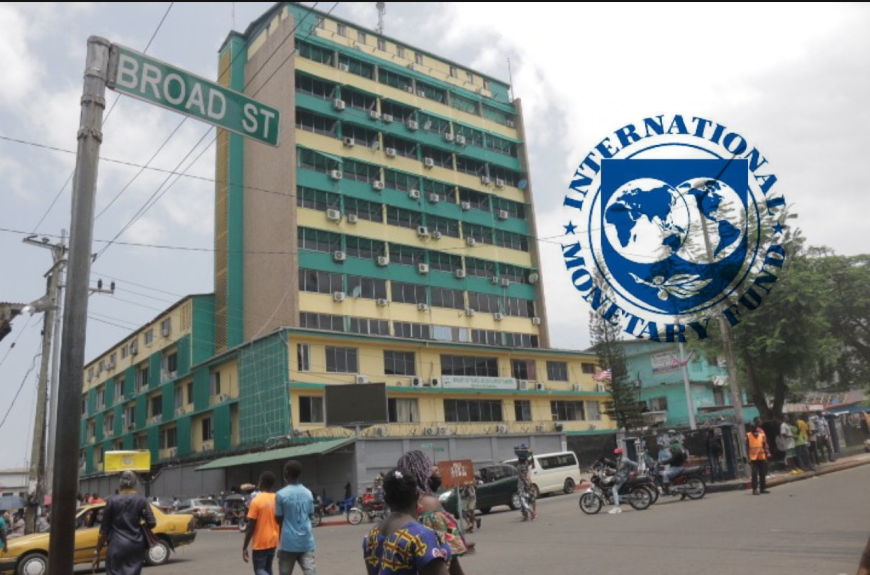“IMF Approves US$46 Million for Liberia to Strengthen Reserves and Support Economic Reforms”

Monrovia Liberia: Liberia’s financial stability and economic future, the International Monetary Fund (IMF) has approved US$46 million to aid in bolstering Liberia’s international reserves and to further its economic reforms. This decision comes on the heels of the IMF’s approval of a larger US$210 million Extended Credit Facility (ECF) arrangement for Liberia in September 2024. The funding marks a pivotal moment for the West African nation as it faces both growth opportunities and challenges in reshaping its economy.
Liberia, a nation emerging from a history marked by civil unrest and economic difficulties, has been steadily working to stabilize and grow its economy since the end of the civil war in 2003. Despite challenges, such as infrastructural deficits, high unemployment, and fiscal management issues, the country has made notable strides in its recovery.
The IMF’s latest funding approval reflects Liberia’s commitment to a series of essential reforms outlined in the government’s ARREST (Agenda for Reform and Socioeconomic Transformation) Agenda for Inclusive Development (AAID). This economic blueprint seeks to address macroeconomic imbalances, manage debt sustainability, and build a foundation for more inclusive, private sector-led growth that reaches beyond the traditional enclave sectors like mining and oil.
In a bid to diversify its economy, Liberia is also focused on developing agriculture, infrastructure, and services, sectors that could significantly improve the livelihoods of its population. The ARREST agenda embodies these long-term aspirations, but it is clear that Liberia’s success hinges on reforming key financial and fiscal systems in the short to medium term.
IMF’s Role in Liberia’s Reform Agenda
The approval of the US$46 million is just one piece of the larger ECF arrangement designed to provide financial support over a 40-month period. The IMF’s assessment of Liberia’s economic progress has been positive, noting that economic growth is expected to accelerate. Real GDP growth projections show an increase to 5.6% in 2025, up from 4.8% in 2024, signaling optimism about the country’s economic trajectory.
Inflation and exchange rates have remained stable, which is a positive sign for Liberia’s financial health. A significant reduction in the public debt-to-GDP ratio is also highlighted, suggesting progress in fiscal consolidation. In particular, the IMF commended Liberia’s fiscal discipline, especially the government’s recent successes in controlling recurrent spending and restoring tax revenue mobilization.
However, challenges remain. The financial sector still faces hurdles, notably the large stock of non-performing loans (NPLs) in weak banks. The IMF emphasized that addressing these NPLs is essential for strengthening financial stability. Moreover, governance weaknesses within public institutions need to be tackled to ensure that the fiscal reforms have a lasting impact.
The approval of the US$46 million by the IMF isn’t just a financial boost—it represents international recognition of Liberia’s economic strides. As Liberia navigates its path to economic reform, the IMF’s support ensures that it has the resources to maintain momentum in its reform efforts.
This funding is also a critical signal to private investors and development partners that Liberia is committed to rebuilding its economy and addressing systemic financial challenges. For businesses considering investments in Liberia, the IMF’s endorsement reinforces the country’s efforts to stabilize and strengthen its financial systems, fostering a more conducive environment for private sector growth.
Liberia’s leaders have made it clear that the road to economic prosperity is paved with sound macroeconomic policies and structural reforms. While the IMF recognizes Liberia’s progress, it also stresses that further action is necessary. Strengthening Liberia’s taxation regime, modernizing tax collection, addressing fiscal imbalances, and reforming weak financial institutions will be vital to Liberia’s long-term success. The introduction of the Value Added Tax (VAT) is expected to play a critical role in creating fiscal space, which could allow for increased investments in infrastructure, education, and healthcare, all of which are key to improving the quality of life for Liberians.
The IMF’s approval of the US$46 million grant is an important milestone in Liberia’s journey towards economic stability. But the real work begins now as the government continues to implement reforms that will ensure this support translates into long-term growth, inclusivity, and improved living standards for all Liberians. With the backing of the IMF and a dedicated reform agenda, Liberia is poised to navigate the complexities of economic development and emerge as a stronger player in the West African economy.
What's Your Reaction?







































































